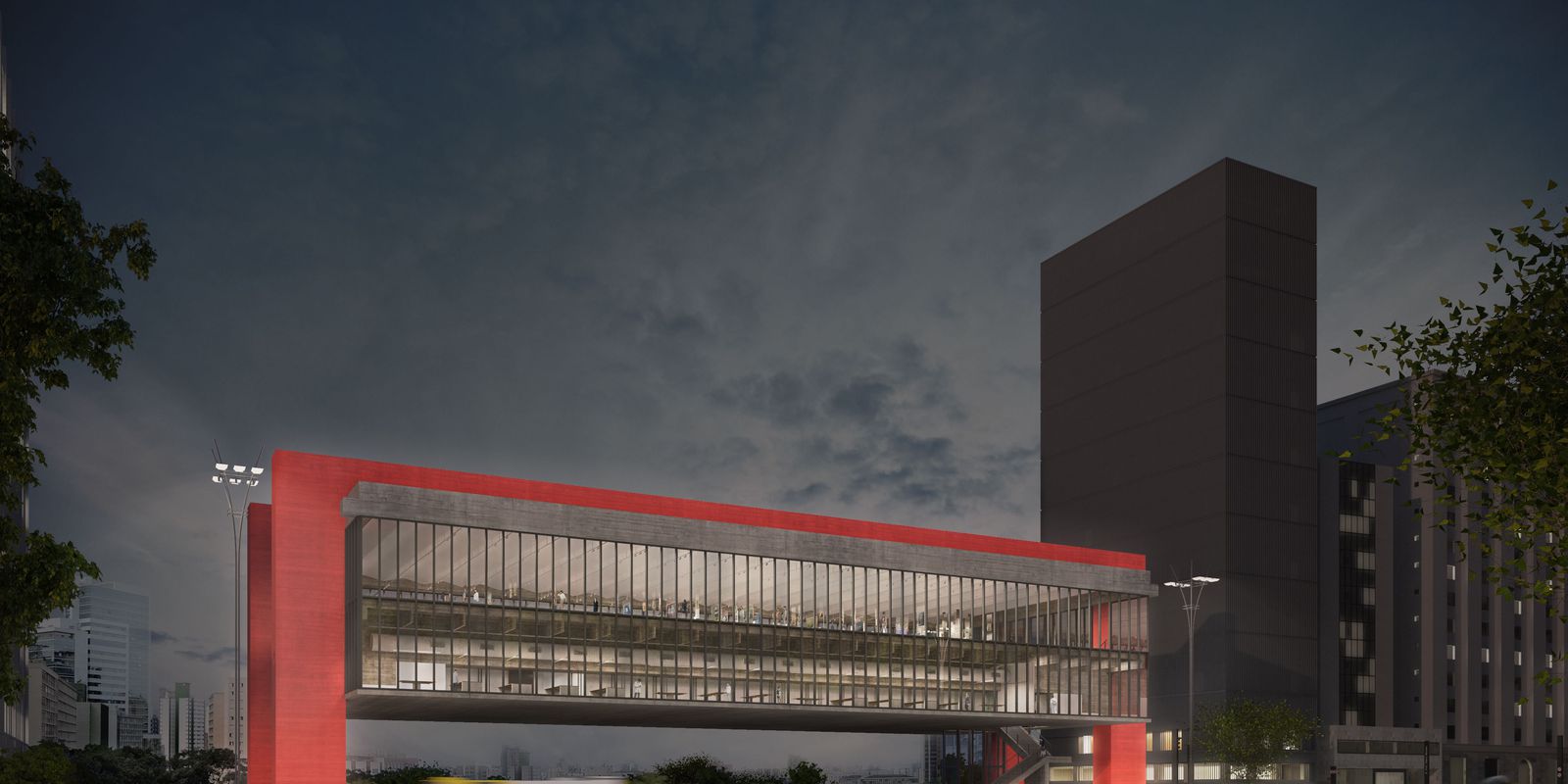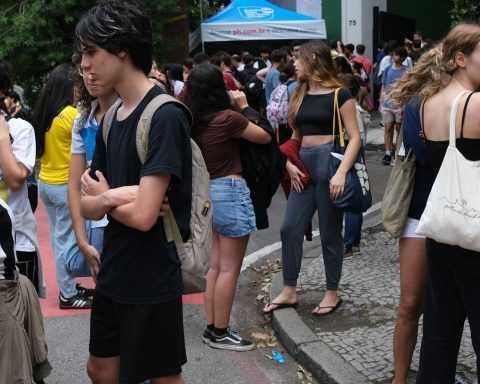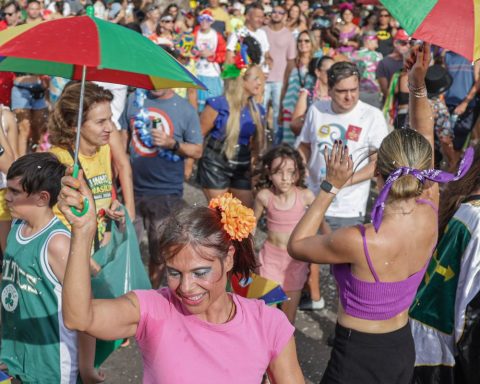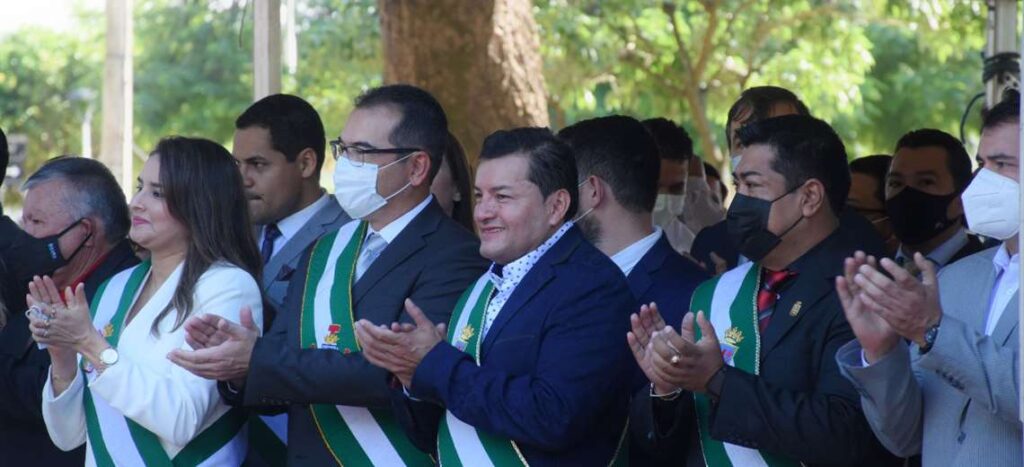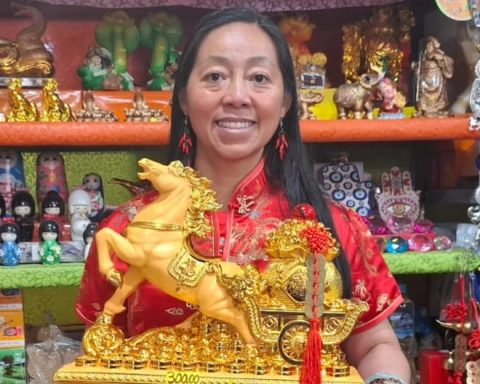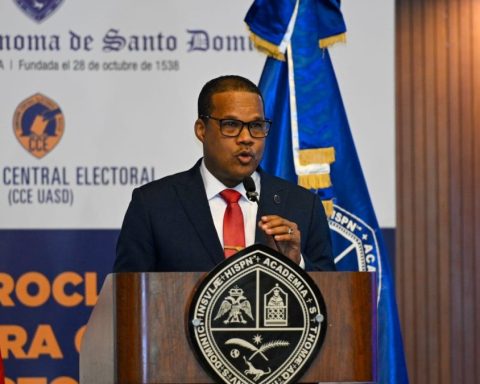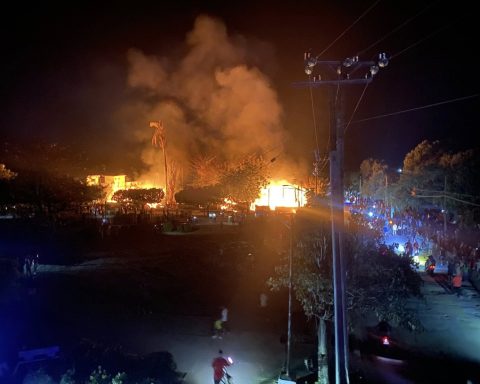To discuss and reflect on the centenary of the Modern Art Week, celebrated this February, the São Paulo Art Museum (MASP) presents two new exhibitions: one dedicated to Alfredo Volpi (1896-1988) and another to the artist Abdias Nascimento (1914-2011). Although they did not participate in the week, the two artists helped to build Brazilian modernism and represented an idea of Brazilianness or national art, a theme that was extensively explored by the Modern Art Week of 22.
Volpi Popular is the third series of Masp exhibitions organized around Brazilian modernist painters and with reference to popular culture. Before Volpi, the museum already dedicated exhibitions to Cândido Portinari (an exhibition called Popular Portinari) and Tarsila do Amaral (Tarsila Popular), which was the most visited in the history of the museum.
The exhibition presents from Volpi’s initial production, focused on urban and rural landscapes, as well as his more geometric art, when his famous flags appeared – and which he developed until the end of his career. 96 works by Volpi are on display. The curatorship is by Tomás Toledo.
Volpi’s painting mixes modern and popular traditions: the artist sought to present handcrafted work, popular festivals, religious themes and the facades of Brazilian architecture. In fact, for this exhibition, one of the curatorship’s interests was to rescue his religious works and their representation of black Mary and the baby Jesus.
The artist, writer, intellectual, actor and activist Abdias Nascimento will be honored in the exhibition called Abdias Nascimento: a Panamanian artist, which seeks to emphasize his contribution to Brazilian painting. The exhibition will present 62 paintings by the artist produced between 1968 and 1998. The curatorship is by Amanda Carneiro and Tomás Toledo.
Abdias Nascimento’s paintings associate orixás with geometric abstraction, free forms and African symbols, in addition to exploring more traditional genres such as landscapes and portraits. Nascimento participated in the formation of the Frente Negra Brasileira and the foundation of the Teatro Experimental do Negro, one of the most radical dramaturgy experiences in the country.
Both exhibitions are on display until June 5th. The Masp has free admission on Tuesdays. To visit the exhibitions, the internet scheduling is required.
